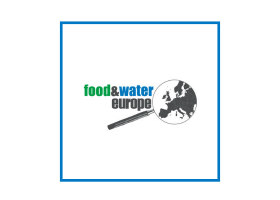
The individuals placed under arrest were a part of the ongoing protests of Ineos’ corporate sponsorship of the former Team Sky, which often include masks of CEO Jim Ratcliffe as a way to “unmask” the chemical company’s greenwashing efforts. Petrochemical giant Ineos imports climate destructive fracked gas for its virgin plastic production and has big plans to further expand this polluting business in Europe.
Food & Water Watch and Food & Water Europe see this arrest as a violation of basic rights guaranteed under the International Covenant on Civil and Political Rights, the European Convention on Human Rights and other protections of rights of expression and assembly.
It is also part of a troubling trend worldwide to punish protesters whose free speech harms the reputation of corporate entities like Ineos.
“My freedom was taken away simply because I wore a t-shirt to protest Ineos’ corporate sponsorship, and to highlight the company’s destructive impact on the climate,” said Gheorghiu. “I was told that I was being detained because of a fear I would ‘disrupt’ a team presentation for the Tour de France. Our intention was to distribute the masks and talk to people about the chemical company’s problematic sponsorship of the event. One police officer said that they know that ‘my organisation’ has done other things the police don’t like.”
In response to the arrests, Food & Water Watch and Food & Water Europe executive director, Wenonah Hauter, released the following statement:
“This arrest is not only a violation of our colleagues’ basic civil rights, but it is also a brazen display of state power to protect the reputation of a corporation and its owner, billionaire Jim Ratcliffe. It is he and his company that poses the threat to our climate and Europe’s safety and security, not peaceful protesters.
“This is part of a troubling trend in Europe, U.S. and beyond where peaceful environmental protests are increasingly being criminalized. Just last month, a UN Special Rapporteur on human rights warned that our basic liberties and rights are imperiled by increasing climate chaos. Every time a climate activist is arrested under sham pretenses, our rights erode a little further.
“We call for an immediate investigation into this arrest and the human rights violations it represents. We can’t let our institutions flout the rule of law and our democratic rights to protect billionaires and fossil fuel companies—or any company—from public scrutiny and peaceful protest.”
Contacts:
Food & Water Europe: Andy Gheorghiu, +49 160 20 30 974; [email protected]
Food & Water Watch (U.S.): Peter Hart, +1-732-839-0871; [email protected]


